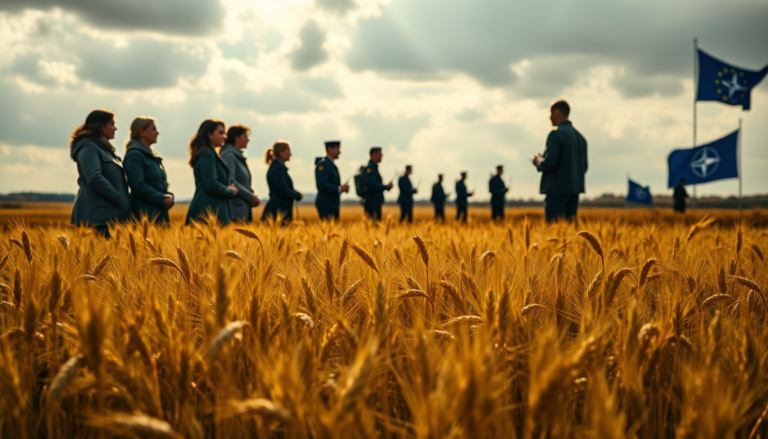Former Ukrainian minister Dmytro Kuleba delivers a chilling warning about NATO's future and the potential sacrifices required.

Topics covered
In a startling declaration, former Ukrainian Foreign Minister Dmytro Kuleba emphasizes a grim reality: British mothers must grapple with the truth that their sons might need to sacrifice their lives to defend Europe. This warning arises amid escalating tensions surrounding NATO’s role as a deterrent against Russian aggression.
The looming threat of invasion
Kuleba’s remarks, delivered in an interview, highlight the palpable fear that Russian President Vladimir Putin could soon test NATO’s resolve by invading member territories. As he pointedly asks, ‘Will NATO send a division to fight back?’ The stakes have never been higher, and with NATO’s mutual defense clause on the line, the potential for conflict is becoming increasingly real.
Testing the limits of NATO’s commitment
The urgency of Kuleba’s message cannot be overstated. He argues that the true test for NATO will not just be whether the United States will fight for Europe, but whether the citizens of member nations, particularly in Britain, will accept the harsh reality of war.
‘If they don’t, there is no NATO,’ Kuleba warns. This stark ultimatum echoes the historical hesitations that led to catastrophic consequences in the past.
Germany’s intelligence chief has echoed this sentiment, suggesting that Putin’s strategy may involve probing NATO’s defenses to reveal perceived weaknesses. As Kuleba recalls, the echoes of World War II linger, reminding us of the fateful decisions made when Western nations hesitated to defend Poland. Such doubts, he warns, could embolden Putin and lead to dire outcomes.
The cost of complacency
Kuleba’s experience during Russia’s invasion of Ukraine has left him with a sobering perspective. He reflects on the mistakes made by his country, where underestimating Russia’s ambitions led to devastating losses. ‘We thought it wouldn’t happen to us,’ he admits, urging others not to fall into the same trap of complacency. The chilling reality is that as many as one million Russian soldiers may already be casualties of this ongoing conflict, raising the stakes even further.
A call to awareness
As he contemplates the future, Kuleba implores British citizens to recognize the seriousness of the situation. ‘I could be seen as a warmongering Ukrainian,’ he acknowledges, but his message is one of caution. He warns against the dangerous belief that such a conflict could never reach European shores. ‘Do you think that if Ukraine can attack Russian airfields, Russia cannot strike at any European infrastructure?’ he challenges.
Shifting perceptions in Moscow
The implications of Kuleba’s statements are compounded by recent assessments from German intelligence, suggesting that Russia may no longer believe in NATO’s Article 5 commitment. The notion that NATO’s collective defense guarantees could falter is a frightening prospect. Kuleba’s warnings resonate even louder when juxtaposed against these assessments, highlighting the urgent need for unity and preparedness among NATO allies.
As the geopolitical landscape shifts, Kuleba’s call to action is clear: NATO must take decisive steps to reinforce its commitments. With imminent discussions among NATO members regarding defense spending, the urgency is evident. The UK’s current defense budget allocation falls short, and leaders are being urged to prioritize military readiness.
The future of NATO
In a thought-provoking conclusion, Kuleba raises a question that resonates deeply: What will it take for NATO to fully embrace its obligations? As discussions about increasing defense spending circulate, he underscores the dire need for a collective commitment to safeguard against potential threats. The specter of complacency looms large, and Kuleba’s reflections serve as a powerful reminder of the costs associated with inaction.
As NATO prepares for its upcoming summit, the decisions made will not only shape the future of the alliance but also determine the security landscape of Europe. Will member nations rise to the challenge, or will history repeat itself? Only time will tell.




